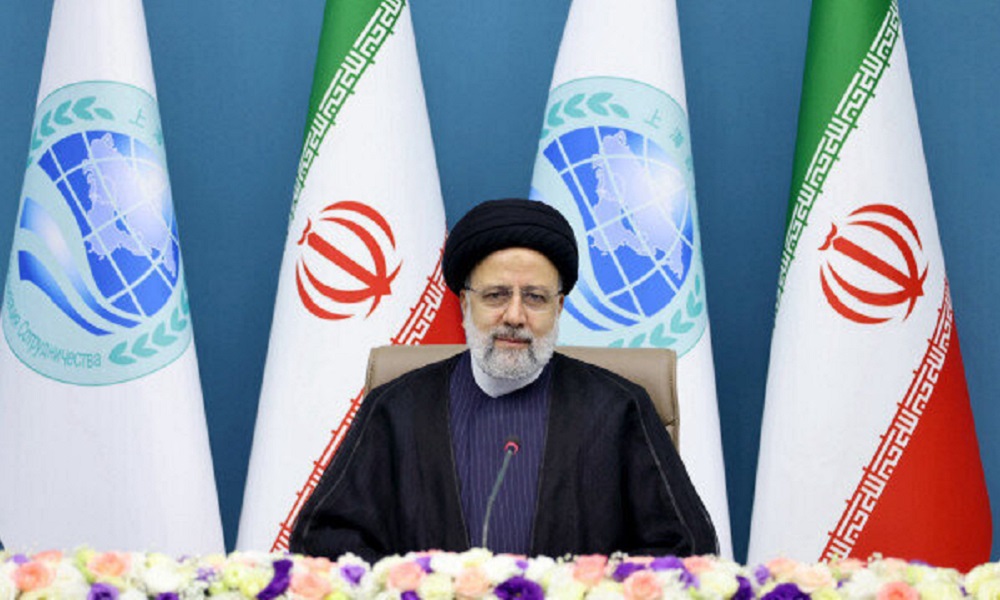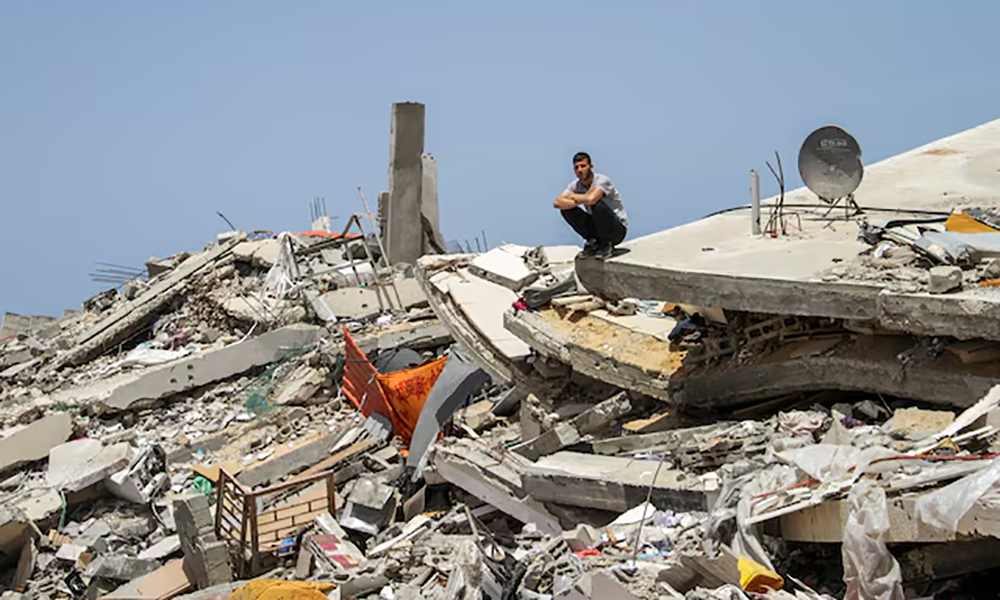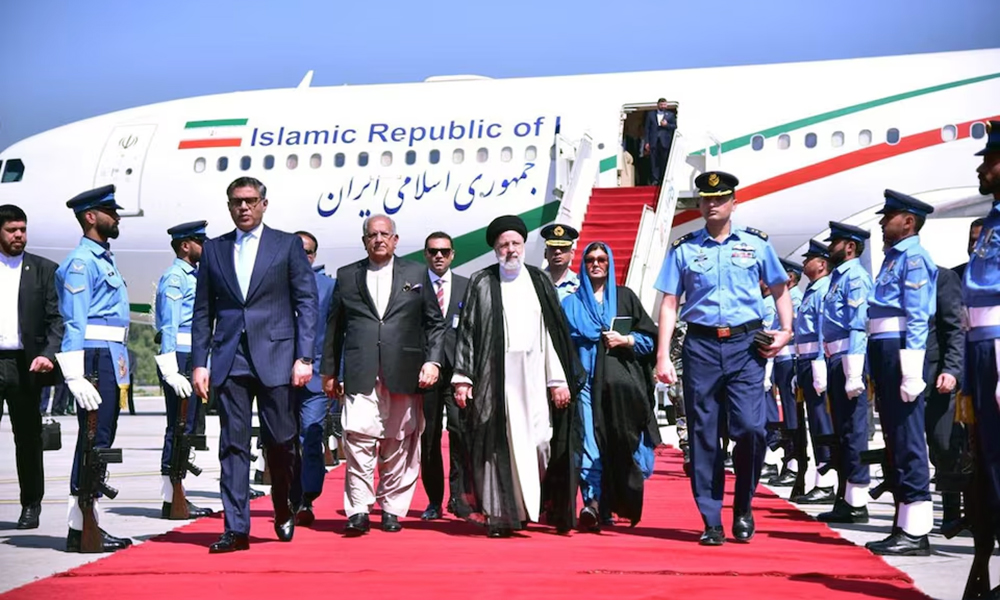Regional
Iran becomes full member of Shanghai Cooperation Organization

Iran on Tuesday gained full membership of the Shanghai Cooperation Organization (SCO) at the end of the 23rd summit of the SCO Council of Heads of States.
Tehran became the ninth member of the regional bloc.
“The member states stressed the historical significance of the admission of the Islamic Republic of Iran to the SCO as a full Member State,” said the New Delhi Declaration issued at the end of the summit, released on Tuesday evening.
The SCO members also noted the “importance” of signing the memorandum of obligations by Belarus to “achieve the status of an SCO member state.”
In his address to the summit, Russian President Vladimir Putin urged the SCO to grant Belarus full membership, Andadolu reported.
Indian Prime Minister Narendra Modi, the host of the summit held virtually, said he was “happy Iran is becoming a member of SCO grouping,” adding that the summit would also pave the way for Belarus to become a permanent member of the bloc.
Also, at this year’s meeting, Kazakhstan will be taking over as chair of the eight-nation group from India.
Iran joined China, Russia, Kazakhstan, Kyrgyzstan, Pakistan, Tajikistan, India and Uzbekistan as full member during Tuesday’s summit where Belarus, and Mongolia were invited as observer state.
Promising continued efforts to assist the Afghan people in view of the evolving humanitarian situation, the SCO members said they consider it “essential to establish an inclusive government” in Afghanistan with the participation of representatives of all ethnic, religious and political groups in Afghan society.
Addressing the summit, China’s President Xi Jinping on Tuesday called on the Shanghai Cooperation Organization (SCO) to oppose “building barriers and walls” as well as “de-coupling.”
“China is willing to work with other members to stick to the right direction of economic globalization, object protectionism, unilateral sanctions and overstretching the national security concept,” Xi said.
Xi said China “will strive to make the cake of mutually beneficial cooperation bigger so as to deliver more benefits to people around the world,” the Chinese daily Global Times reported.
Xi also called on the SCO members “to enhance their solidarity and mutual trust.”
He emphasized “safeguarding regional peace and ensuring common security,” according to a transcript released by the China Daily newspaper.
The Chinese president said the SCO members should “strengthen exchanges and mutual learning” besides “fostering closer people-to-people ties.”
Calling for “pragmatic SCO cooperation to speed up economic recovery,” Xi suggested “synergizing” the Belt and Road Initiative with “development strategies of various countries.”
He added: “The historical trend of peace, development, and win-win cooperation is unstoppable.”
The Indian Prime Minister Modi said New Delhi had made sustained efforts, during its term as the SCO chair, to take “our multi-faceted cooperation to new heights.”
The food, fuel and fertilizer crisis is a “big challenge” for all the countries in the world “surrounded by controversies, tensions and epidemics,” Modi said, adding: “Terrorism may be in any form, in any manifestation, we have to fight together against it.”
Regional
New UK sanctions target Iranian drone industry

Britain on Thursday announced new sanctions targeting Iran’s military drone industry, in response to Iran’s drone and missile attack on Israel earlier this month.
The measures, taken in co-ordination with the U.S. and Canada, target four businesses and two directors at a network of drone companies with the aim of limiting Iran’s ability to launch drones.
“The Iranian regime’s dangerous attack on Israel risked thousands of civilian casualties and wider escalation in the region,” British Foreign Secretary David Cameron said in a statement.
“Today the UK and our partners have sent a clear message – we will hold those responsible for Iran’s destabilising behaviour to account.”
Britain also said it would introduce new bans on the export of drone and missile components to Iran, seeking to limit its military capabilities.
Last week, Britain imposed sanctions on Iranian military figures and organisations, in another coordinated move with the United States, following Iran’s action against Israel.
Iran launched drones and fired missiles at Israel on April 13 as a retaliatory strike for the attack on its embassy compound in Damascus two weeks prior, raising the risk of further escalation in conflict in the Middle East.
(Reuters)
Regional
Turkey accuses U.S. of double standards over Gaza in rights report

Turkey on Wednesday accused the United States of having a policy of double standards on human rights, saying Washington’s annual rights report failed to reflect Israel’s assaults in Gaza, Reuters reported.
Turkey’s foreign ministry said in a statement it was deeply concerned that the U.S. report did not “duly reflect the ongoing inhumane attacks in Gaza”.
The report was prepared with “political motives, far from impartiality and objectivity”, it said, calling on Washington to cease its “double-standard policy on human rights”.
It also cited U.S. ties with the Syrian Kurdish YPG militia which Ankara deems a terrorist organisation.
Israeli forces have killed more than 34,000 Palestinians in Gaza, according to health authorities there, many of them civilians and children. The enclave has been reduced to a wasteland and extreme food shortages have prompted fears of famine.
Israel launched its assault in response to an attack by the Hamas militant group on Oct. 7 in which Israel says 1,200 people were killed. It denies allegations of deliberately causing humanitarian suffering and targeting civilians.
Turkey has denounced Israel for its campaign in Gaza and called for a ceasefire. It has also criticised Western countries for what it calls their unconditional support of Israel, read the report.
In its report, the U.S. State Department said Israel’s war against Hamas had a “significant negative impact” on the human rights situation in Israel.
On Monday, U.S. Secretary of State AntZony Blinken rejected suggestions that Washington might have double standards over Israel’s record.
Regional
Iranian president lands in Pakistan for three-day visit to mend ties

Iranian President Ebrahim Raisi arrived in Islamabad on Monday on a three-day official visit, the foreign office said, amid tight security in the Pakistani capital, Reuters reported.
The visit, which Pakistan’s foreign office said would run until Wednesday, comes as the two Muslim neighbours seek to mend ties after unprecedented tit-for-tat military strikes this year.
“The Iranian president is accompanied by his spouse and a high-level delegation,” Pakistan’s foreign ministry said in a statement, adding that the group also included the foreign minister, other cabinet members and senior officials.
Raisi will meet Prime Minister Shehbaz Sharif and other officials, besides visiting the eastern city of Lahore and southern port city of Karachi, it added.
Major highways in Islamabad were blocked as part of the security measures for Raisi’s arrival, while the government declared a public holiday in Karachi, read the report.
Raisi’s visit is a key step towards normalising ties with Islamabad, but Iran’s supreme Leader Ayatollah Ali Khameni, not the president, has the last say on state matters, such as nuclear policy.
Tension is also high in the Middle East after Iran launched an unprecedented attack on Israel a week ago and central Iran in turn suffered what sources said was an Israeli attack on Friday.
Pakistan and Iran have had a history of rocky relations despite a number of commercial pacts, with Islamabad being historically closer to Saudi Arabia and the United States.
Their highest profile agreement is a stalled gas supply deal signed in 2010 to build a pipeline from Iran’s South Fars gas field to Pakistan’s southern provinces of Balochistan and Sindh, Reuters reported.
Despite Pakistan’s dire need of gas, Islamabad has yet to begin construction of its part of the pipeline, citing fears over U.S. sanctions – a concern Tehran has rejected.
Pakistan said it would seek waivers from the U.S., but Washington has said it does not support the project and warned of the risk of sanctions in doing business with Tehran.
Faced with the possibility of contract breach penalties running into the billions of dollars, Islamabad recently gave the go-ahead for construction of an 80-km (50-mile) stretch of the pipeline.
-

 Latest News3 days ago
Latest News3 days agoRashid Khan named AWCC’s brand ambassador
-

 Regional4 days ago
Regional4 days agoIranian president lands in Pakistan for three-day visit to mend ties
-

 Sport4 days ago
Sport4 days agoKolkata beat Bengaluru by one run in IPL as Kohli fumes at dismissal
-

 Sport4 days ago
Sport4 days agoACL: Aino Mina 3-0 Istiqlal Kabul; Attack Energy 3-0 Khadim
-

 Climate Change4 days ago
Climate Change4 days agoRescuers race to reach those trapped by floods in China’s Guangdong
-

 Business5 days ago
Business5 days agoAfghanistan, Kazakhstan to hold joint expo in Kabul
-

 World3 days ago
World3 days agoMalaysian navy helicopters collide in mid-air, 10 killed
-

 Sport3 days ago
Sport3 days agoJaiswal ton powers Rajasthan to big IPL win
























